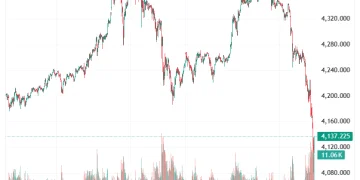Ghana Urged to Embrace Non-Interest Finance to Drive Inclusive Growth
Ghana has been urged to adopt non-interest finance as a bold step toward inclusive growth, sustainable development, and strengthening global investor confidence.
The call was made at the 4th Islamic Finance International Conference (IFIC 2025), held at the Accra International Conference Centre on Saturday, September 27, under the theme “Non-Interest Finance as a Catalyst for Inclusive and Sustainable Development.”
The conference brought together more than 500 participants, including regulators, policymakers, academics, entrepreneurs, and faith leaders. It was graced by the National Chief Imam, His Eminence Sheikh Osmanu Nuhu Sharubutu, chaired by the President of the Ghana Catholic Bishops’ Conference, Most Rev. Matthew K. Gyamfi (represented by Dr. George Baah-Danquah), and honoured by the Governor of the Bank of Ghana, Dr. Johnson Pandit Asiama (represented by Mr. Franklyn Belnye).
Speakers underscored the potential of non-interest finance, which prohibits interest, speculation, and unjust gains, and instead promotes risk-sharing, asset-backed financing, and ethical principles. Financial instruments such as Sukuk (non-interest bonds), Murabaha (trade finance), Ijara (leasing), and Musharaka (partnerships) were highlighted as viable tools to support Ghana’s infrastructure development, small and medium-sized enterprises (SMEs), and social projects.
Drawing on global case studies, participants cited Nigeria’s ₦1.4 trillion Sukuk-funded road projects, Malaysia’s pioneering role in non-interest finance, and the United Kingdom’s sovereign Sukuk issuance as evidence of the model’s universality. They emphasised that non-interest finance is not religion-specific but aligns with global standards of fairness, transparency, and sustainability.
The conference urged the Bank of Ghana to expedite the finalisation of its regulatory framework and establish a National Financial Regulatory Advisory Council of Experts. Government was also encouraged to adopt Sukuk as an innovative financing tool for infrastructure, housing, and healthcare under its “Big Push Agenda.”
In addition, universities and training institutions were called upon to introduce specialised programmes to build expertise in ethical finance, while financial institutions were tasked to design inclusive products for farmers, SMEs, and households.
Delivering the closing remarks on behalf of the Catholic Bishops’ Conference, Dr. George Baah-Danquah stressed that “finance is not merely about numbers or profits, it is about people, values, and the common good.” He noted that non-interest finance must be positioned to serve smallholder farmers, market women, young entrepreneurs, and marginalised communities, ensuring equitable access in Ghana’s secular state.
The conference concluded with a strong call for action, noting that Ghana’s political stability, interfaith harmony, and growing investment appetite uniquely position the country to emerge as a regional hub for ethical finance in West Africa. Stakeholders pledged to move beyond dialogue to implementation, with a focus on making non-interest finance a catalyst for prosperity, inclusivity, and national unity.








